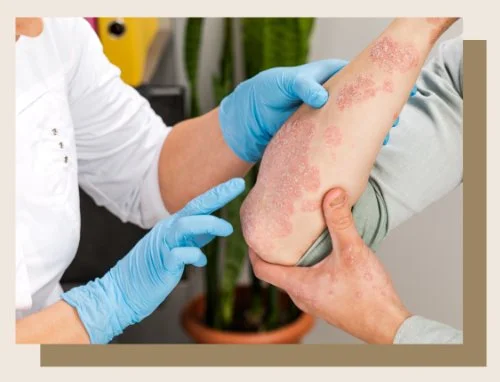Learn about
Psoriasis
Psoriasis is a chronic inflammatory condition that primarily affects the skin, causing red, scaly patches to form. It occurs when the immune system mistakenly attacks healthy skin cells, speeding up the life cycle of skin cells. Normally, skin cells grow deep in the skin and rise to the surface about once a month. In psoriasis, this process is accelerated to a matter of days, causing a buildup of cells on the skin's surface, leading to the formation of plaques.
These plaques can vary in size and severity, and they may be itchy, painful, or both. Psoriasis can affect any part of the body, but it commonly appears on the elbows, knees, scalp, and lower back. It can also affect the nails, causing them to become pitted, discolored, or thickened.
The exact cause of psoriasis is not fully understood, but it is believed to involve a combination of genetic, immune, and environmental factors. Triggers for psoriasis flare-ups can include stress, infections, medications, smoking, and stress. Psoriasis is a chronic condition with no cure, but various treatments are available to help manage symptoms and improve quality of life. Treatments options are tailored to each individual patient depending on other co-morbidities and risk factors.



